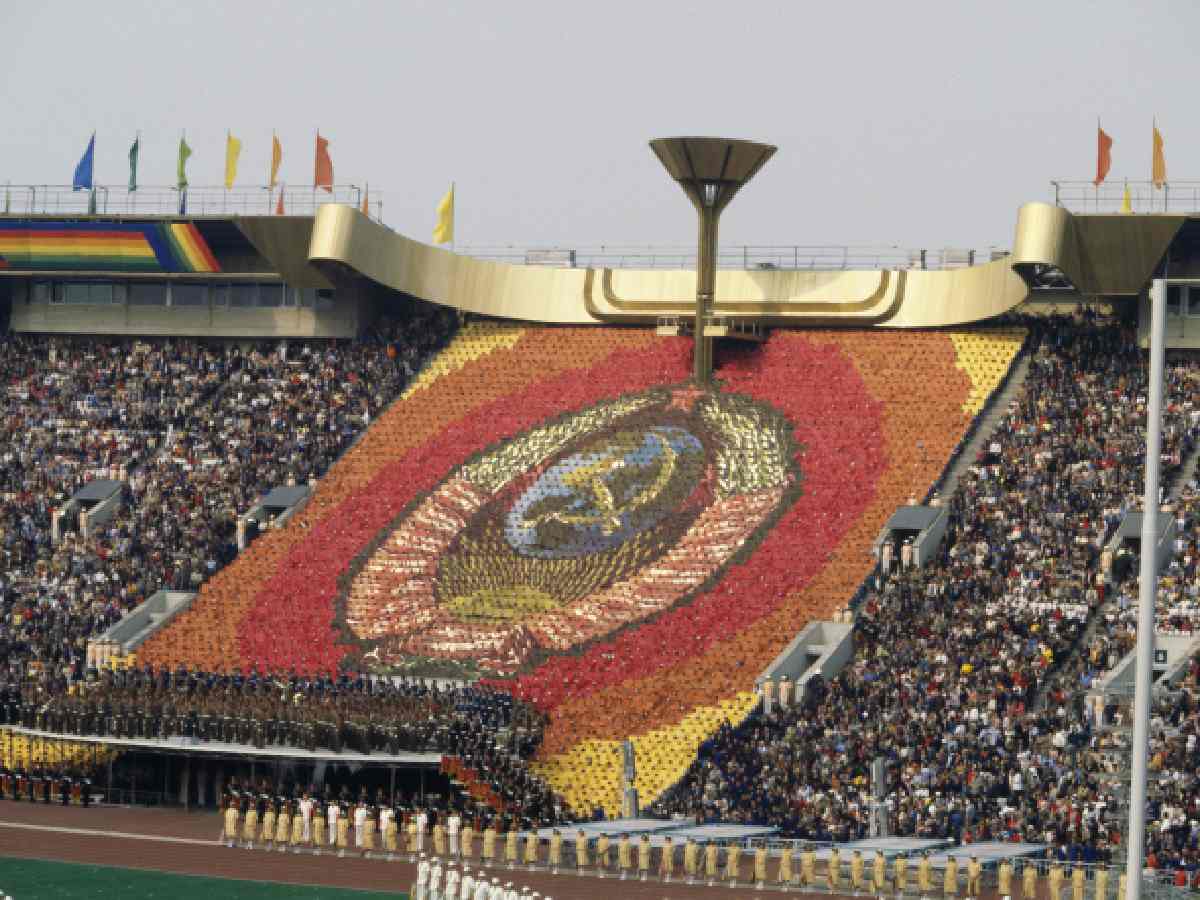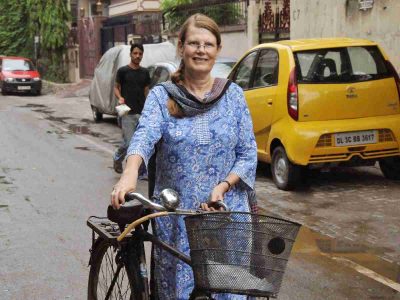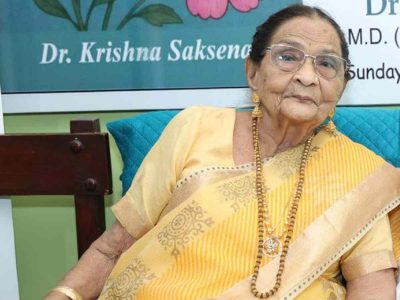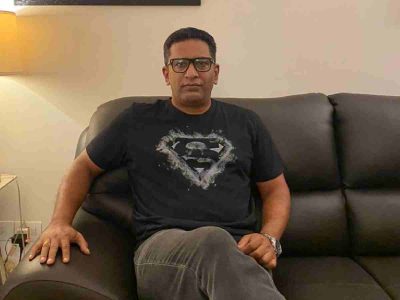Nobody would have imagined even in their wildest dreams that the BSF Ashwini Officer’s mess in East Nizamuddin would have close ties with Olympic Games. Yes, it is a fact. The tough and thinking cop Ashwini Kumar, who also served as the second Director General of BSF, had monitored the security aspects of Olympics after the 1972 Munich Games. The BSF mess is named after him.
Tall and slim, Kumar was a very reticent and self-effacing man. He generally avoided giving interviews to the media.
But if he agreed to talk to you, he would reveal everything.
Kumar headed the security team of Montreal (1976), Moscow (1980), Los Angeles (1984), Barcelona (1992), Atlanta (1996) and Sydney (2000) Olympic Games.
“Everything was going according to plan at the Olympic Games until tragedy struck at the 1972 Munich Olympics when Palestinian terrorists invaded the Olympic Village and killed two members of the Israeli team. Nine other Israelis were held hostage as the terrorists bargained for the release of 200 Palestinian prisoners in Israel. That gory tragedy brought the Games to a halt and cast a long shadow over what had been until then memorably joyful Games,” Kumar narrated the scary and sombre mood of the Olympic Village in his Friends Colony (East) residence in 1994.
Kumar was also there in Munich with the Indian contingent as an official.
Post Munich, there was demand from various quarters to organise both summer and winter Olympic Games without any untoward incident.
Also Read: Delhi: New law leaves male, trans gender rape survivors in the lurch
That was the time when the International Olympic Conference (IOC) requested him to look after the security aspect of the Games.
IOC was aware that Ashwini Kumar knew policing well. Hockey buff and officer of the Imperial Police (now Indian Police Service), Ashwini Kumar accepted the responsibility with both hands. He was already a known name in India after he nabbed Succha Singh, the killer of Punjab Chief Minister Pratap Singh Kairon in Nepal.
Contribution as a cop
During his tenure as cop, he had cracked some of the toughest cases in Indian police history like liquidating the notorious Bhupat gang in Saurashtra, for which he was hand-picked and sent from Punjab in 1951.
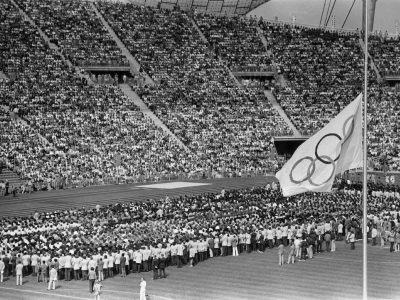
“In subsequent Olympics after Munich, increased security measures in the Olympic Village and competition venues protected the athletes. It is true that increased security also diminished the festive and open atmosphere that was there at the heart of Olympics. But then you have no choice after the Munich massacre and now as the number of terror outfits are swelling thick and fast across the world,” Kumar had said in an interview.
He also served as the President of Indian Hockey Federation (IHF) for several years.
Also Read: Delhi: Displaced Yamuna farmers scramble for shelter
“The amount of money that’s spent on security of Olympics is bigger than the amount spent on venues, information technology, and employees,” said Kumar, before adding, “The Olympics, of course, is a target of international terrorism, and we know that by virtue of the fact that it has been attacked. We have learned from our failures, and the failures have taught us things that we can do to improve the level of security, not only for the Olympics, but for other events.”
Kumar joined the IOC in 1973. He was a Member of the Executive Board of IOC (1980-1987, 1992-1996), and Vice-President of the IOC (1983- 1987).
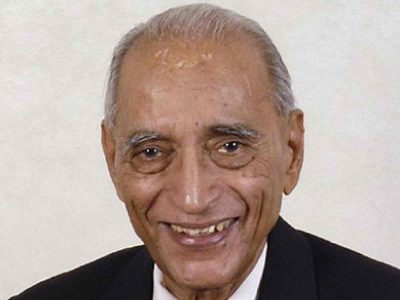
“Since Ashwini Kumar started looking after the security aspects of Olympic Games, the biggest show on earth became safe,” said Avtar Singh Sohal ‘Tari’, who represented the Kenyan hockey team in four Olympic Games.
Tari became friends with Kumar at the Munich Olympics. Both of them were in the Games Village when terrorists invaded it on September 6, 1972.
Kumar had the distinction of witnessing and being part of all Summer Olympics from 1948 London till 2012 London – 17 in all. He was also regularly invited to the Winter Olympics. For his work as security head at several Olympics, Kumar was awarded the Royal Spanish Medal — one of the highest civilian decorations in Spain — by the King of Spain. In 2000, he was adjudged ‘Policeman of the Millennium’ in Sydney for his work related to Olympic security.
Connoisseur of good things
“Kumar was an extremely sensitive man with a heart of gold. He was a connoisseur of good things — music, art, literature, poetry and sport. His first love was, of course, hockey: he even nicknamed Rohini, his first born, Hockey,” author and former RAW chief, AS Daulat wrote when Kumar passed away in 2015.
Kumar was fond of Urdu poetry and often recited famous couplets. He remembered hundreds of Urdu couplets. Those who knew him closely say he could forgive but never forget easily and readily burst into his favourite Urdu and Persian poetry. The Harballabh Sangeet Sammelan in the winter in Jalandhar was closest to his heart.
Moving away from the Olympic Games, I once asked him, “How did you nab the killer of Pratap Singh Kairon?”
Kumar narrated everything.
Also Read: Dengue Returns: Hospitals, civic agencies gear up to counter the threat of vector-borne diseases
“Actually, Kairon Sahab came to Delhi’s Kasturba Gandhi Marg (then Curzon Road) to attend a function in the house of his friend. After attending the function, he was going back to Chandigarh on February 5, 1965. When his car reached near Sonepat, it was attacked by notorious criminal Succha Singh and others. They sprayed bullets at Kairon’s car. He died there and then. After Gandhi ji, it was the first murder of a political personality in free India. Naturally, Punjab Police swung into action and identified the killers. Through my sources, I came to know that Succha Singh was hiding in Nepal. I went there with my team. We reached his hideout. There I had a physical fight with him and I knocked him down with my powerful punches,” he recalled.
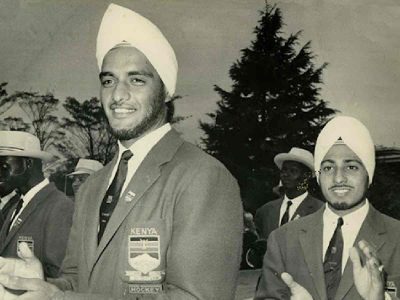
For sportspersons, Kumar’s South Delhi house always remained open.
“While serving Punjab Police and BSF, he had given jobs to many, many talented youngsters. Besides hockey, he was also President of the Indian Basketball Federation and President of the Punjab Olympic Association for 12 years,” concludes Kukoo Walia, a former India hockey player and life and soul of Nehru Hockey Championship.

